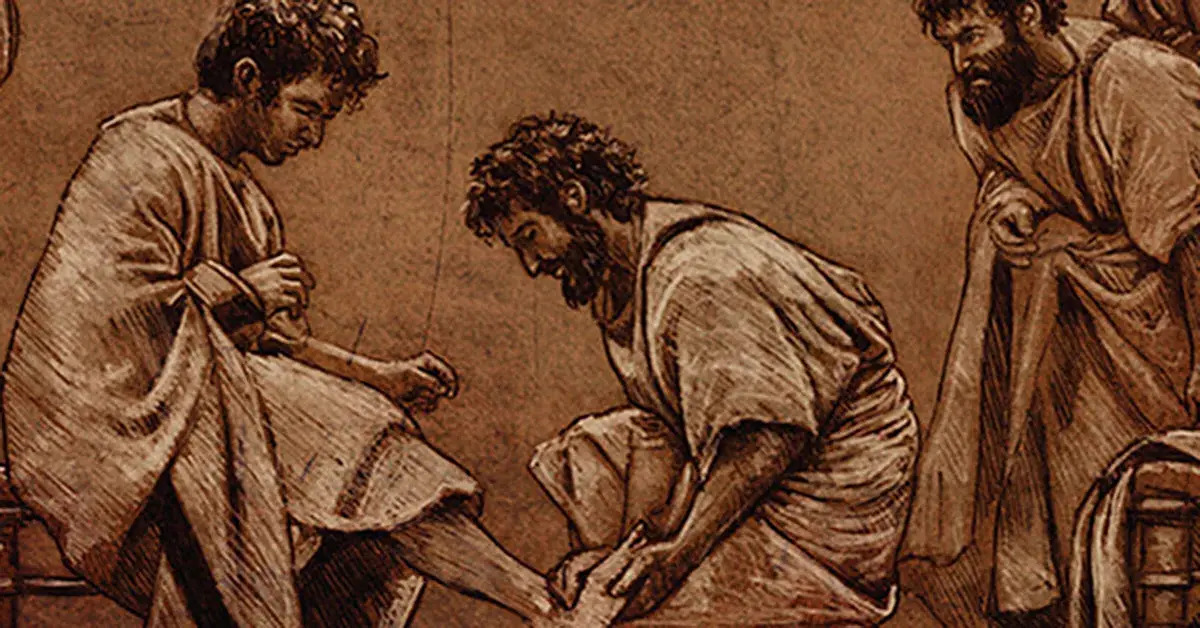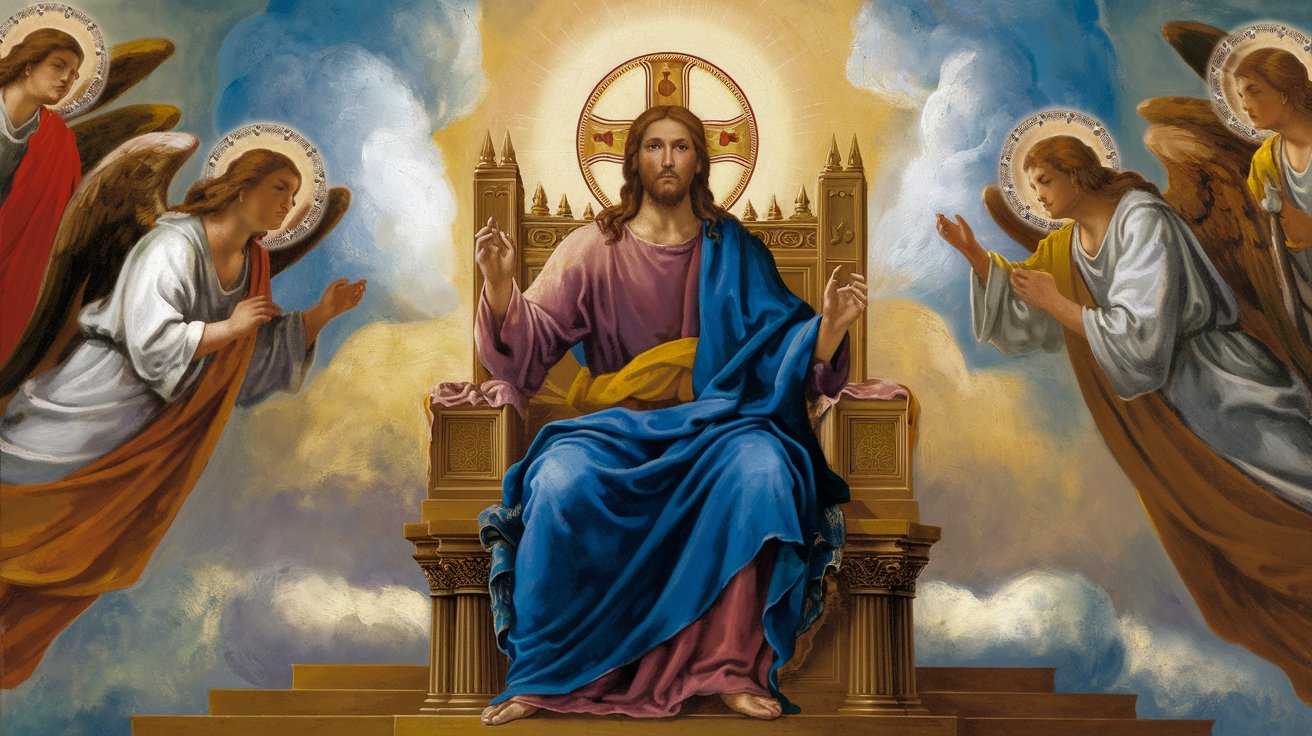
What is Monarchianism? Monarchianism is a theological doctrine that emerged in the early Christian Church, mainly during the second and third centuries AD. It emphasizes the absolute unity of God, rejecting the Trinitarian concept of three co-eternal, consubstantial, and equally divine persons. Instead, Monarchians believe in a single, indivisible Godhead, often referred to as "monarchia" (ruling of one). This doctrine sparked significant debate and opposition within Christian theology, particularly from theologians like Tertullian, Hippolytus, and Origen of Alexandria. Monarchianism is divided into two main types: Dynamic (or Adoptionist) Monarchianism and Modalistic (or Sabellian) Monarchianism, each with its unique perspectives on the nature of God and Jesus Christ.
What is Monarchianism?
Monarchianism is a theological doctrine that emerged in the early Christian Church. It emphasizes the unity of God, rejecting the Trinitarian concept of three co-eternal, consubstantial, co-immanent, and equally divine hypostases. Monarchians believe in a single, indivisible Godhead, often referred to as "monarchia" (ruling of one).
-
Definition of Monarchianism: Derived from the Greek word "monarkhia," meaning "ruling of one," Monarchianism stresses the absolute, uncompromising unity of God, contrasting with the doctrine of the Trinity.
-
Historical Context: Monarchianism developed during the patristic period, a time when Christian theologians were attempting to clarify the relationship between the Father, Son, and Holy Spirit. This movement persisted into the third century, influencing early Christian thought and practice.
Types of Monarchianism
Monarchianism isn't a one-size-fits-all doctrine. It has two primary branches: Dynamic (or Adoptionist) Monarchianism and Modalistic (or Sabellian) Monarchianism.
-
Dynamic Monarchianism: This type holds that God is one being, wholly indivisible, and of one nature. It posits that the Son was not co-eternal with the Father and that Jesus Christ was essentially granted godhood (adopted) for his perfect life and works. Theodotus, Artemon, and Paul of Samosata were notable proponents.
-
Modalistic Monarchianism: This view considers God to be one who appears and works through different "modes" of Father, Son, and Holy Spirit. The terms "Father" and "Son" describe the distinction between the transcendence of God and the incarnation. Notable adherents include Noetus, Praxeas, and Sabellius.
Opposition to Trinitarianism
Monarchianism stood in stark opposition to Trinitarianism, which was gaining traction in early Christian theology.
-
Opposition to Trinitarianism: Monarchianism opposed the doctrine of an independent, personal subsistence of the Logos, central to Trinitarian theology. Monarchians affirmed the sole deity of God the Father, rejecting any notion of multiple persons within the Godhead.
-
Theologians and Their Views: Several prominent theologians of the early Christian Church opposed Monarchianism. Tertullian, Hippolytus, and Origen of Alexandria were among the most vocal critics. Tertullian wrote extensively against Monarchianism, including his tract "Adversus Praxean."
Key Figures and Their Teachings
Several historical figures played significant roles in the development and opposition of Monarchianism.
-
Sabellius and Sabellianism: Sabellius, a priest from Rome, is often associated with Modalistic Monarchianism. His teachings emphasized that God is one who manifests Himself in different modes or roles, such as Father, Son, and Holy Spirit.
-
Noetus and Early Modalism: Noetus of Smyrna introduced early forms of Modalistic Monarchianism. He taught that Jesus was God and that the terms "Father" and "Son" referred to different aspects of the same divine person.
-
Praxeas and His Teachings: Praxeas, a priest from Asia Minor, traveled to Rome and Carthage around 206 AD. He taught that Jesus was a man born of a virgin but empowered by God at baptism to perform wonders. This view was countered by Tertullian in "Adversus Praxean."
Modern Relevance and Legacy
Despite being considered a heresy by mainstream Christian theology after the 4th century, elements of Monarchianism continue to influence contemporary theological discussions.
-
Oneness Pentecostalism: A form of Monarchianism still exists today in Oneness Pentecostalism. This anti-Trinitarian movement rejects the distinctions among the Persons of the Godhead, teaching that Jesus is God and simultaneously the Father and the Holy Spirit.
-
Biblical References: The Bible presents God as one God (Deuteronomy 6:4), but also speaks of three Persons—the Father, the Son, and the Holy Spirit (Matthew 28:19). Monarchians argue that these distinctions are merely different modes or roles of the same divine person.
-
Theological Implications: Monarchianism has significant theological implications. It rejects the concept of multiple persons within the Godhead, instead positing a single, indivisible deity. This view is often seen as a form of unitarianism.
Councils and Synods
The early Christian Church convened several councils and synods to address the issues surrounding Monarchianism.
-
Council of Nicaea: The Council of Nicaea in 325 AD marked a significant turning point in the debate over Monarchianism. The council's decision to affirm the divinity of Jesus Christ and the Holy Spirit solidified Trinitarian theology as the dominant view within Christianity.
-
Councils and Synods: Later councils continued to refine Trinitarian doctrine, solidifying its place in Christian theology. These gatherings were crucial in addressing the theological disputes of the time.
Criticisms and Challenges
Monarchianism has faced numerous criticisms and challenges throughout its history.
-
Criticisms and Challenges: Critics argue that Monarchianism fails to adequately explain the biblical references to multiple persons within the Godhead, instead reducing these distinctions to mere modes or roles of a single deity.
-
Patripassianism: Both Modalistic Monarchianism and Dynamic Monarchianism hold to the doctrine of Patripassianism, which teaches that God the Father suffered on the cross with (or as) the Son. This teaching is seen as a heresy by Trinitarians.
Theological Debates
Monarchianism has been the subject of intense theological debates throughout history.
-
Theological Debates: Logos theologians like Tertullian and Hippolytus argued against Monarchian views, emphasizing the need for a clear distinction between the Father, Son, and Holy Spirit. Monarchians countered by arguing that these distinctions were unnecessary and even heretical.
-
Historical Figures: Theodotus of Byzantium, Artemon, and Paul of Samosata were key figures in Dynamic Monarchianism, while Noetus, Praxeas, and Sabellius were associated with Modalistic Monarchianism.
Legacy in Theology
Despite being rejected as a heresy, Monarchianism has contributed significantly to the development of Christian theology.
-
Legacy in Theology: It has influenced various theological movements, including unitarianism and nontrinitarianism. Understanding Monarchianism provides valuable insights into the historical and theological debates that shaped early Christianity.
-
Modern Relevance: Elements of Monarchianism continue to influence contemporary theological discussions. Oneness Pentecostalism, for example, retains many of the anti-Trinitarian views associated with Monarchianism.
Monarchianism's Lasting Impact
Monarchianism, with its emphasis on the unity of God, has left a significant mark on Christian theology. Emerging in the second and third centuries, it challenged the developing Trinitarian doctrine by proposing a single, indivisible Godhead. The two main types, Dynamic and Modalistic Monarchianism, offered different perspectives on Jesus' divinity and God's nature. Despite being labeled heretical, Monarchianism influenced theological debates and helped shape early Christian thought. The Council of Nicaea in 325 AD was a turning point, affirming Trinitarianism and relegating Monarchianism to the fringes. Yet, its ideas persist in modern movements like Oneness Pentecostalism. Understanding Monarchianism provides valuable insights into the historical and theological struggles that have shaped Christianity. Its legacy reminds us of the complexities in defining the divine and the ongoing quest for theological clarity.
Was this page helpful?
Our commitment to delivering trustworthy and engaging content is at the heart of what we do. Each fact on our site is contributed by real users like you, bringing a wealth of diverse insights and information. To ensure the highest standards of accuracy and reliability, our dedicated editors meticulously review each submission. This process guarantees that the facts we share are not only fascinating but also credible. Trust in our commitment to quality and authenticity as you explore and learn with us.


